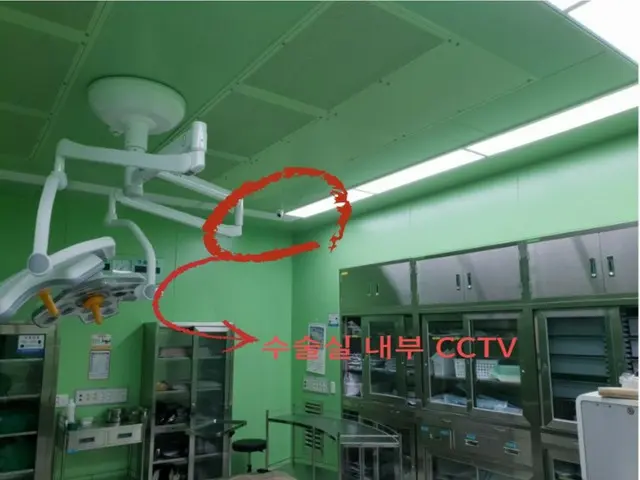Must be. Local anesthesia surgeries performed while the patient is conscious are not subject to photography. On the 25th, the South Korean Ministry of Health and Welfare (Ministry corresponds to the Ministry) announced that the installation and operation of CCTV in operating rooms of medical institutions will be implemented.
The revised medical care law that makes medical care mandatory will go into effect today. The inside of the operating room is photographed, allowing the patient and the medical personnel involved in the surgery to be seen. From the time the patient is anesthetized
You will be photographed until you leave the operating room. Under the Medical Act, the only place where CCTV must be installed is the ``operating room.'' Photography of the surgical scene is only possible at the request of the patient or patient's guardian.
is. Medical institutions cannot voluntarily take pictures of surgical procedures. If a medical institution violates the obligation to install CCTV and take pictures, it will be subject to a fine of up to 5 million won (approximately 550,000 yen).
. However, △ emergency surgery, △ high-risk surgery that requires active measures to save the patient's life, △ concerns that it may impede the purpose of training for the major, △ cases where photography is requested immediately before surgery, etc. Ba,
You can refuse to be photographed. In this case, the reason for refusal must be explained to the patient or guardian in advance, and the reason must be recorded and kept for three years.
Photography information must be kept for at least 30 days from the date of photography. However, if we receive a request to view or provide the information, 30%
Do not delete the video even after the date has passed. Both doctor and patient groups have complained about the mandatory CCTV in operating rooms.
Medical associations and other organizations have argued that CCTV in operating rooms violates fundamental constitutional rights such as doctors' portrait rights.
He filed a constitutional petition on the 5th of this month. It is argued that doctors may avoid performing dangerous surgeries due to concerns about medical disputes. Doctors still teach essential subjects such as surgery, which involves many operations, and obstetrics and gynecology.
Although there is a shortage, there are concerns that the number of doctors volunteering may decrease even more after CCTV becomes mandatory. There is also the possibility that the bodies of surgical patients could be leaked through hacking.
The Korean Federation of Patients' Organizations released a statement on the 7th of this month, saying, ``In the medical dispute mediation application process, patients must wait 14 days for consent to be approved by medical institutions and medical professionals.
"The period should be at least 90 days from the date of the incident, or at least 60 days, which is the period for CCTV storage at daycare centers under the Infant Child Care Act," he said, expressing dissatisfaction with the stipulation that the storage period for video footage is set at 30 days.
.
2023/09/25 11:21 KST
Copyrights(C) Herald wowkorea.jp 85

